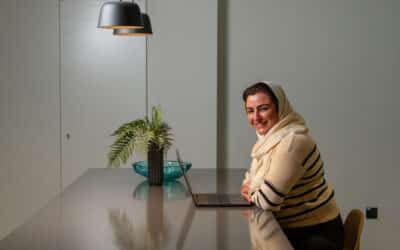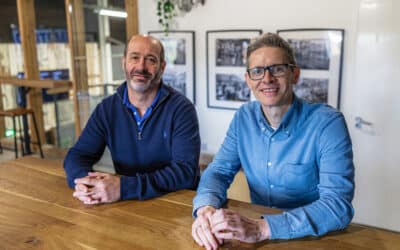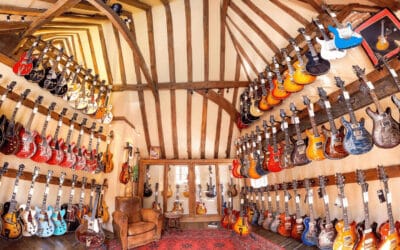“I refuse to be part of any more ‘bro’ networks,” says one female founder, frustrated with the current investment landscape.
Four years after the government commissioned the independent Rose Review, led by former Natwest CEO Alison Rose to address the issues facing female entrepreneurs, have the barriers lifted for female founders wanting to grow and scale their businesses when raising investment?
For some of the founders we’ve chatted to from start-up to scale-up in the North, progress is slow.
At Pet Trust UK, a platform working to help make animal purchases safer online, founder Felix Robinson has found herself in “limbo” trying to raise pre-seed investment.
Acknowledging the “disappointingly low” figures of funding given to female founders, she’s filled with scepticism and uncertainty.
“It’s a depressing thought knowing you’re at the back of the queue before you have even kicked off raising. Having a thick skin is something you definitely need,” Robinson tells Prolific North.
“While the external funding landscape may appear daunting, my purpose and passion keeps me going during challenging times.”
Sarah*, a start-up female founder from Manchester, also feels deflated. Raising investment has been the “hardest thing” she’s ever done.
“It’s awful. Everyone will say to you: ‘It’s so much easier to raise now as a woman and there’s so much more money floating around.’ There isn’t, that’s a lie.
“The thing I hate the most is when funds publish the figure of portfolio companies that are female founders on the website. I think ok, but are they all female founding teams or do they have co-founders that are men? Are they just cherry picking the data? It’s just PR noise and I hate lip service. What we need is actual cash.”
According to a report by Beauhurst, less than 2p for every £1 invested in 2022 went to all-female founding teams, a stark contrast to the 85p going to all-male founding teams.
“Women aren’t necessarily seen to be responsible for money. They’re either infantilized by society and seen as ‘silly women’ or angry. There’s that old mentality that drips down through wealth, seen in those middle aged or older men who sit on investment committees,” adds Sarah*.
After a lengthy career as a registered nurse for 21 years, Emma-Louise Fusari has bootstrapped her own welltech company In-House Health, but is now seeking £250,000 of pre-seed investment. She’s found the raising process especially challenging as a solo female founder.
“There’s no doubt about it, raising investment as a female founder is harder. I think I was naive in thinking that it doesn’t matter about gender. If you’re credible, have a business that can be commercially successful and have huge social impact, of course you’ll get investment. But my experience has sadly been filled with conscious and unconscious sexism,” she says.
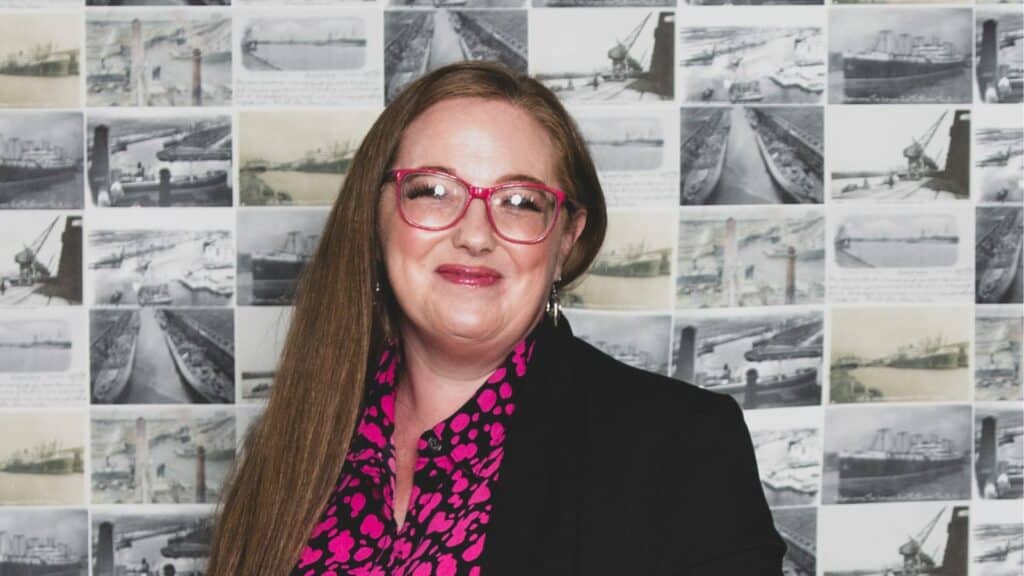
“The investment world was designed by men for men – believe me I’m no man hater!”
Raising investment: The good and the bad from start-up to scale-up
It’s not an entirely bleak picture. Although plenty of female founders have had their fair share of difficulties, positive stories are emerging too thanks to accelerators, incubators and mentors across the North’s tech ecosystem.
As a PhD student and co-founder of Leeds-based medtech company Theia AI, which aims to diagnose multiple sclerosis accurately to tackle high misdiagnosis rates, Sonia Dembowska thanks Conception X, a national accelerator, for jumpstarting her journey.
From the basics of how to raise funding, organising finances and building a team, at the end of the accelerator she was given the opportunity to pitch to investors alongside her co-founder, where they received £100,000.
She’s now confident about plans to raise further VC investment in around a year to further build the team and commercial product, further crediting being part of PARSE – a peer-to-peer network for start-ups in Leeds delivered by Paceline and supported by Leeds City Council and Bruntwood SciTech – and other female mentors for their support.
“I’ve not experienced any hardships so far. I have to say that the Leeds community has a really good prominent group of female founders that really support each other.”
Female focused fintech app Financielle, set up by sisters Laura Pomfret and Holly Holland in Manchester, believe the ecosystem and support networks in the North have played a big part in their successes.
“It has to be said, we could not have raised had it not been for our relationship with Tech Nation and being on the Exchange programme at Enterprise City,” says Pomfret. “We’ve never felt that anyone has treated us differently because we’re female.”
In a WhatsApp group with female founders, which started off in Manchester, sharing experiences about practical tips on raising from start-up to scale up has been hugely beneficial too.
“We are big champions of saying: ‘You can do this, this is how we did it and we share and introduce people.’ We’re trying to grow everyone’s network as well as ours and the group really helps.”
For Dembowska, one of the “big drivers” of Theia AI’s success is Zandra Moore, CEO of Panintelligence, who now sits on the board: “She gives a lot of advice and has opened the doors to a lot of breadcrumbs.”
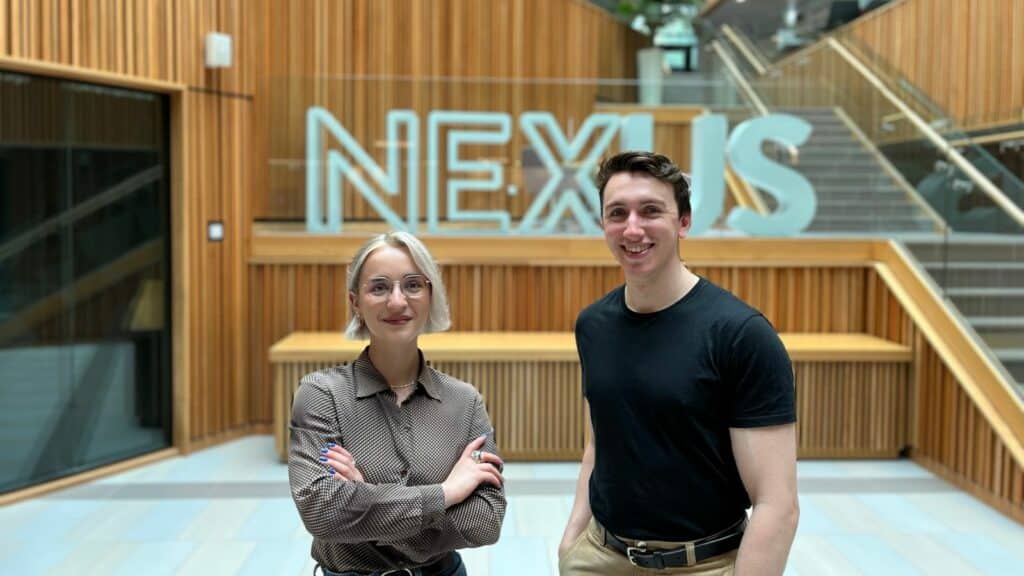
Those accelerators and building up networks became essential to Moore’s own career. She launched her own consultancy business, after struggling to find a part-time director role in the tech industry after becoming a mum. Six years later the opportunity arose to do a management buyout after working with Panintelligence as a client.
“I wasn’t well networked at the time into the funding investment community, I had no idea who to speak to, I certainly wasn’t surrounded by people with money that I could just go and tap on the shoulder,” she says.
She used her own money to buy the IP, relying on her co-founders’ networks at the time. But there was a “tipping point” in 2019, when seed investors were interested in partially cashing out.
“It’s not something that we particularly wanted to do at the time and we weren’t really interested in the parties that were interested in buying us. It felt like it was too soon for the business. I started to think: ‘How do I raise money as opposed to relying on other people’s networks?’”
Joining a costly PwC scale-up accelerator programme, reluctantly as it was the first one being run in Yorkshire at the time, it became really valuable to meet investors, advisors and figure out how to raise growth capital and understand the different types of funding rounds.
“It really helped me to understand and network into an ecosystem I’ve never networked into. Without that, I don’t think I would have ever raised the money and we would have probably sold the business. Panintelligence would be a very different story.”
She founded Lean in Leeds, a community aimed at connecting and empowering women with their ambitions.
“I set it up because I couldn’t find people like me at the time and I wanted to find people like me. As a female founder and leader, I couldn’t see other female entrepreneurs, they weren’t visible. We started with 20 and from there it just bloomed.”
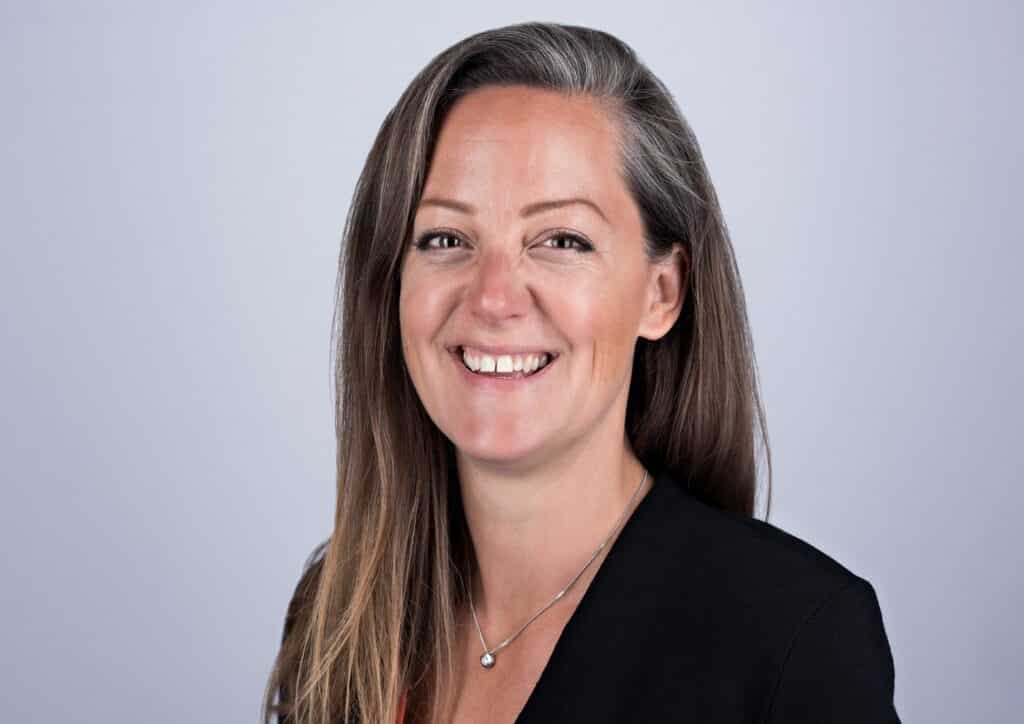
Plugging female founders into the right networks and making sure they have confidence to “get investor ready” when pitching has become a big part of the support on NatWest’s accelerator in Manchester, one of 13 across the UK.
“There’s still loads of work to do. With that being said, we’re moving in the right direction,” says Jessica Grocutt, Enterprise acceleration manager at NatWest’s Manchester hub.
“Unconscious bias is still very much ingrained in lots of investment funds”
Without having access to the same networks male founders have, female founders are already “a mile back from the starting line,” says Laura Sisson, Investment manager at YFM Equity Partners and partner at Fund Her North.
Pomfret agrees: “There’s this thing about the men doing deals where the women aren’t there. I think that is still true, and has been true for a long time. Having an artificial environment where networking can happen with the right people really helps.”
“Women just don’t have the same business or commercial networks that men take for granted,” adds Sisson. “There’s a lot that needs to be done. The likes of Fund Her North are trying to a) raise awareness of the different funding options out there but b) give women the support and confidence needed to go out there and do it.
“Part of it then comes back to us as investors as well by facilitating that transition. I don’t like the phrase unconscious bias but, ultimately, I think it is still very much ingrained in a lot of investment funds.”
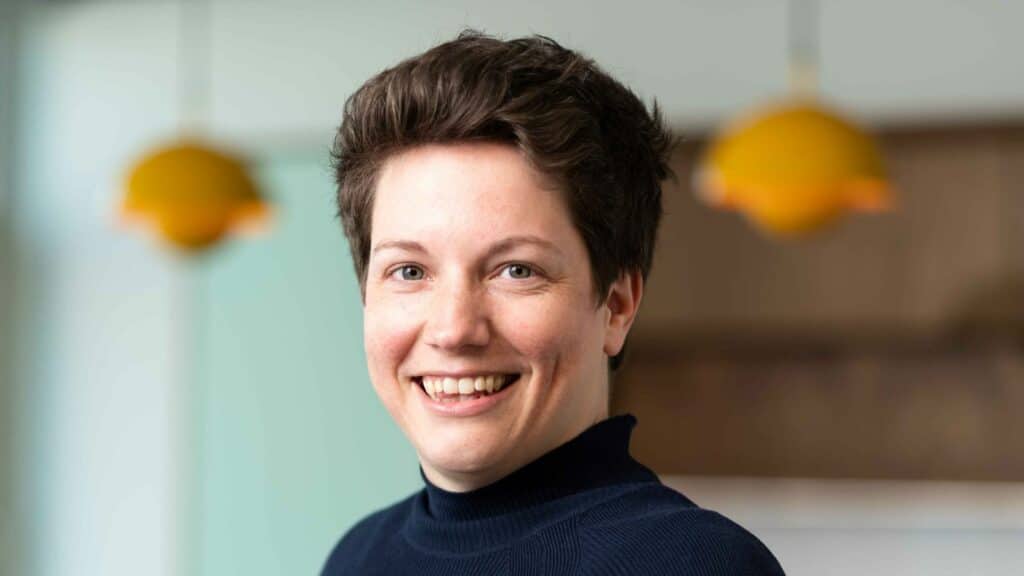
Those unconscious biases have played a part in Mary’s* story, a female founder based in the North West.
“It’s very fashionable for people in this ecosystem to say they are supporting female-led businesses but still people, even good people, make assumptions such as we didn’t have any tech expertise – I’m a software engineer!”
She’s not alone. Moore has faced what she calls “microaggressions,” too.
“From looking over my shoulder, asking ‘who’s really pulling the strings here?’ or constantly asking my co-founder questions so he has to remind them I’m the CEO or feeling ignored in conversations,” she explains. “I don’t think it’s exclusive to the investor community, you always get the few that spoil it and step over the line.”
Jennie Johnson MBE is no stranger to growing a business and successfully raising as the co-founder of early years education app My First Five Years, launched after selling her previous business Kids Allowed.
Keen to stress she has male investors who are “incredibly supportive, very excited about what we’re doing and have listened,” she feels far too many in the past have “switched off” in pitches. She believes that’s down to who is traditionally, but not exclusively, buying their app: mums.
“Typically older men, they just weren’t recognising the value of what we were doing because it’s either something that had happened 20 or 30 years ago for them or they weren’t actively involved in it. So we had to redo our pitch and get them to empathise with our solution in a different way,” she explains.
“Personally, it feels to me like us ladies have to knock on so many more doors before we’re listened to and it is exhausting.
“In common with all of the female founders I’ve spoken to, we are also coming across the dinosaurs and it’s such a shame that we’re having to work so hard to get listened to.”
What do some of the North’s investors think?
At Praetura Ventures, marketing director Ben Davies says the venture capital firm is constantly mulling over its investment process to try and “reduce any biases that might be within it.”
Making sure their investment process is readily available online, the firm also found that “warm intros” were challenging diversity.
“If you know someone who knows someone who knows an investor, getting an intro to them is quite easy. That means that certain circles get those intros but others don’t. So we looked at our process, now even if someone’s a warm intro they still have to create an online pitch application to us meaning that all applications are dealt with exactly the same.”
23% of Praetura’s current portfolio is female-founded, with female founders featuring in 42% of the firm’s current pipeline.
For Sim Singh-Landa, investment Director at Praetura Ventures, VCs need to be approachable, accessible and relatable to put founders at ease.
“Our investment team is 60% female. I think it’s really important for people to be able to walk into a room and not just see a sea of male faces. What immediately puts female founders at ease, from my perspective, is them walking into a room and seeing other females.
“VC has predominantly been a male-led industry and that is changing, there’s still a significant amount to do there.”
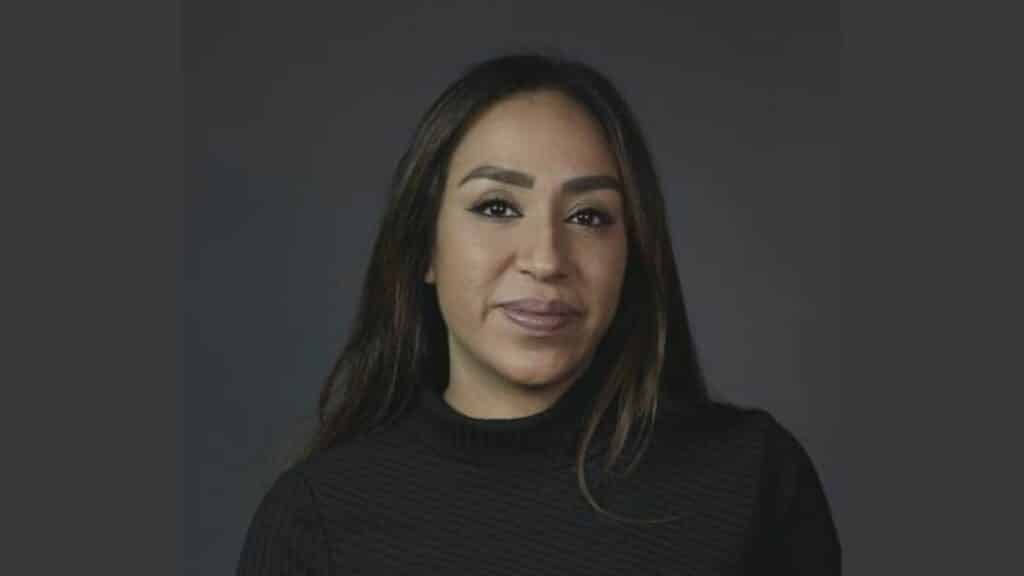
It’s something Sisson acknowledges too, but having male allies on the investment side is key for change.
“It’s going to take time to change. For me, it’s more about finding those allies who want to come to events about women in tech and hear those issues. It would be wrong to assume that all male investors just don’t care, I don’t think that’s true.”
Diversity at the top of investor committees though, is a challenge a number of female founders raised.
“The more diverse the committees that are listening to these pitches, the better,” says Johnson. “I have sat in rooms full of male only investment committees that are representing the VC that I’m pitching to. It is changing and we are seeing more women around the table. But it needs to speed up.”
According to data from the Startups 100 Index, male founders receive 6.2x more funding than female founders in 2023, as opposed to the 7x more they were receiving in 2022.
Yet a female-founded business is still receiving £763,300 in funding on average, compared to £4.7m for solely male-founded firms. But what’s driving this?
“Female founders sometimes ask for less or don’t push as much as some male founders do, there’s a confidence challenge sometimes,” explains Davies.
It’s something Grocutt has seen with female entrepreneurs. “A male founder will say: I’m going to ask for 250k as that’s the SEIS limit whereas some female founders will just ask for 100k and say: ’I’ll make that work.’ We need to change this mindset.”
“There are women in VC, finance and business – we’re all willing to help each other. Finding that mentor that’s willing to help you along that journey and give you that advice, support, encouragement, confidence, and time to build and empower yourself to go out and have those big conversations when you require them, I think that’s really, really important,” adds Singh-Landa.
What can investors and founders do?
For Zandra Moore, who is also a regional sub-group head of the government’s High Growth Enterprise Taskforce, more work needs to be done to bridge the gap for women to go from early-stage to high growth enterprises (HGEs).
“There’s already a lack of funding across all stages of investment but the biggest gap for women is going through high growth,” she explains. “The bigger checks that appear, women just don’t seem to be able to bridge that gap. It’s about networks, education, role models – a whole range of issues need addressing.”
According to data from Beauhurst, high growth enterprises (HGEs) with at least one female founder have higher turnovers (of £125m compared to £93.6m) but despite this, receive on average around 60% of the funding that companies with at least one male founder receive.
It follows on from Rose Review, which discovered if women started and scaled businesses at the same rate as men, they could boost the economy by £250 billion.
“The whole VC model is broken. They’re chasing unicorns, rather than long-term sustainable businesses,” says a frustrated Sarah*. “There’s lots of support for female founders in the community but I still don’t think there’s enough money being offered. It’s sad, but it is moving.”
For a number of female founders, they’re calling for more support after struggling to navigate the complexities of the investment world.
“There’s definitely a gap in the support that’s available or at least that gets you to a certain point. More peer groups would be great and some of the angels and VCs could be more transparent about what they invest in, how much and what they look for,” says Mary*.
“I think more transparency from investors is needed,” adds Fusari. “For first time founders without a support network, guidance on what good looks like would be really beneficial, from SEIS/EIS advance assurance support to legals and term sheets. I’ve heard lots of horror stories about founders that have had terrible deals.”
“You will always hear the horror stories but we’re very passionate about making sure that women know that there are really good angels and good mentors. You absolutely have allies,” says Holland.
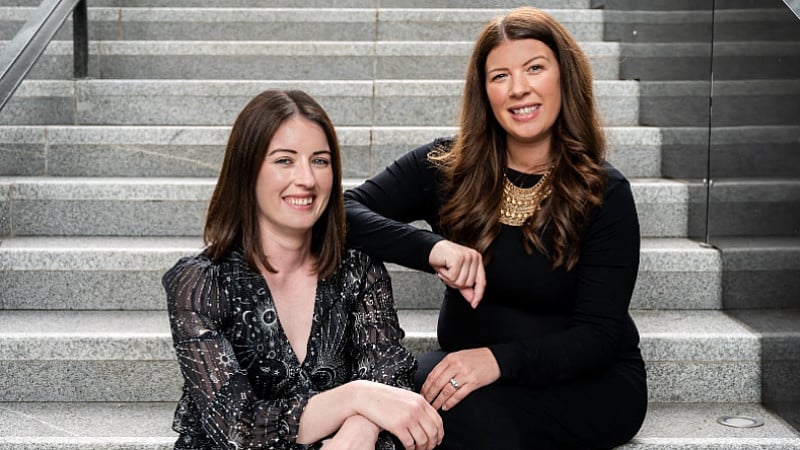
Fusari agrees: “The North has a great community, you don’t have to look very far or hard to find people willing to help and support you.”
On the investor side, Sisson acknowledges change is needed: “There’s more to be done on the investor side, I think it’s a combination of those women that are in the investment space supporting that but also having allies, opening their eyes and giving broader training for those that aren’t quite there yet.
“If we’re not changing and evolving as an industry, then we’re not doing it right.”
But what the ecosystem needs is more breakout success stories early-stage founders can relate to, explains Davies. “It gives them the confidence and almost a blueprint to make their own way.”
Ultimately, to address the problem, it “has to start at the source,” says Singh-Landa.
“There’s a job for VCs to do in terms of increasing the diversity on their own teams. Increasing that diversity of thought becomes relatable to a growing, underserved community.”
*Names have been changed for anonymity.

